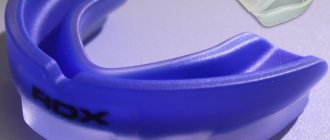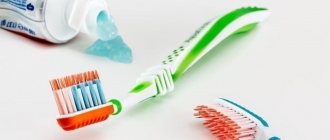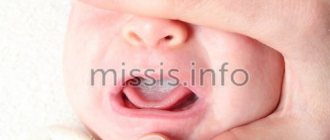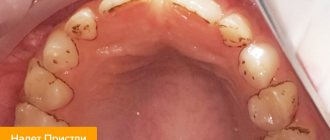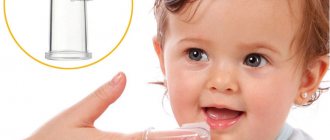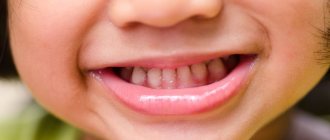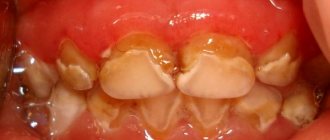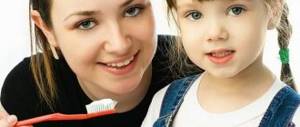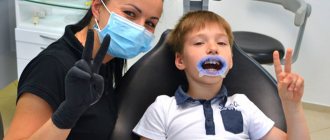Pediatric dentist: what he does and what he treats
Clinical dentistry has many different branches and specialties. One of the important areas is pediatric dentistry, which deals with preventive, diagnostic, and therapeutic measures for teeth in children from 1 year to 17 years of age. Let's consider the job responsibilities of a pediatric dentist, in what cases he needs to be visited, and what skills he has.
Adaptation - what is it and why?
Adaptation is the preparation of the child for the upcoming procedure, be it a simple examination or a long operation. Some parents mistakenly believe that the child will not understand or remember the procedure, so you can simply bring him to the doctor and send him for an appointment. This is wrong, children perfectly feel the mood of their parents, their intentions. If you hide your upcoming visit to the dentist from your child, he will begin to be capricious on the way to the clinic.
An even worse option is to deceive the child, hoping that he is small and will not remember anything. You can’t tell children standard phrases: “Uncle, just look, open your mouth,” “They just pull it once, it won’t hurt at all,” “They just turned on the machine, check,” if they do not correspond to what is happening, because the child considers his parents to be protectors, just like he is. will be able to trust you if mom and dad deceived him. Children remember such cases, and on the next visit to the dentist, the child will not even allow himself to be taken into the doctor’s office, where strangers will hurt him, and the parents will not intercede - from this moment the first fears of doctors arise.
Of course, a lot depends on the clinic and specialists, but the child’s first adaptation to visiting the dentist should begin at home.
Why do you need a pediatric dentist?
Pediatric dentistry has its own specific features related to the anatomical structure and physiology of the child’s jaw. Only a person with a certificate in pediatric dentistry knows these fundamental nuances at an ideal level.
He has knowledge of therapy, pediatrics, pharmacology, and understands the pathogenetic principles of the appearance of dental pathologies depending on the age of the child. A children's doctor, in addition to professional skills, must have communication skills to communicate with children, be a good psychologist, and take into account the emotional and behavioral characteristics of his patients.
Why does a child need a pediatric dentist?
- The oral cavity in children is characterized by morphological differences from the adult jaw.
- Children's dental diseases have a specific course, on which treatment tactics depend.
- The technology for treating inflammatory diseases of the oral cavity (caries, pulpitis, periodontitis) in children is fundamentally different from adults.
- Traumatic injuries to the teeth and jaw have their own characteristics.
- Anesthesia for pediatric patients is different from that for adult patients.
- Children need an individual psychological approach.
How to properly prepare your child for a visit to the dentist
It is recommended to take your child to the dentist for the first time at about 6 months of age or when the first tooth emerges. The child's first visit to the dentist is more intended for parents, as the doctor will tell you how to care for the baby's teeth, and also explain to parents how baby food affects the health of the teeth and oral cavity.
At the age of 1 and 1.5 years. At this time, the dentist may see plaque, bottle caries, or other dental anomalies of non-carious origin, such as hypoplasia. The upper incisors are the first teeth that begin to deteriorate on the inside, so parents should regularly examine the teeth from all sides. For preventive purposes, it is recommended to visit the dentist twice a year.
At the age of 2 and 2.5 years. At this age, to prevent the child, you should try professional oral hygiene and, if the child allows, seal the teeth.
At the age of 3 years. At this age, most children have erupted all their baby teeth – a total of 20 teeth. At a time when the child already has all the teeth in his mouth, the dentist, when assessing them, can determine whether the baby has any problems with the bite. The sooner a problem bite is identified, the sooner the dentist will be able to calculate when it will be necessary to begin correcting the bite and refer you to an orthodontist.
How can parents prepare their child for these visits?
First of all, it is very important to take your child to the dentist for the first examination so that he can make friends with the specialist, and not for the purpose of providing urgent care for a bad tooth. The first visit should be exciting and fun. Parents need to explain to their child what exactly will happen in the dentist's office. If parents themselves are afraid of the dentist, they should not pass on these unpleasant sensations to their child. Parental support during the first visits will serve as a positive experience for the child also for subsequent visits.
It will be very useful to watch some educational material with your child about teeth, how to care for them, etc. Role-playing games: dentist – patient will also be fun. Ask your child what he is afraid of in connection with these visits. It would be a big mistake to promise a child that “They won’t do anything to you,” “You won’t be hurt at all,” and make other similar promises. Examination of teeth is also an action, therefore, “they will do it again!”
Young children often do not differentiate between pain and pressure, so even a slightly stronger touch may be perceived as pain. To make your child feel safe, allow him to take his favorite toy, soft item or blanket with him. Do not tell your child about your negative experiences at the dentist that you had as a child. Don't pass on your fear to your child. Be careful in your statements (do not use the words: injection, drill, be patient, IT WILL NOT HURT).
What does the dentist do during the first visits?
The first visit should be informative and as short as possible - major manipulations should be avoided. The child should meet the dentist in a friendly environment, without unpleasant treatment, pulling out teeth, etc. It is better to choose a time when the child is full of energy and alert, and not when he is tired or wants to sleep. Depending on the child's age and comfort level, parents may be asked to hold the child on their lap or wait in the waiting room to improve contact between the child and the dentist.
During the appointment, the doctor will examine the child’s oral cavity: check the teeth, the condition of the gums, and the bite. The doctor will also give advice on dental care, caries prevention and answer questions that parents may have. You can discuss with your dentist how best to avoid deterioration of your teeth, improve oral hygiene, get rid of your child's bad habits (such as thumb sucking), reduce bad eating habits, etc.
On the first visit, if the child is ready to cooperate, the dentist can brush the child’s teeth and apply fluoride-containing products to protect them from caries - these actions can be considered a way to teach the child not to be afraid of the manipulations performed by the dentist.
It should be remembered that parents are responsible for the oral health of their child. To improve your child's well-being, he should be explained that the dentist is a friend who can help keep his teeth healthy. Children should not be frightened by visiting the dentist.
Baby teeth are just as important as permanent teeth. Baby teeth also need to be treated. Many parents notice holes in their teeth only when they already hurt.
Most often this happens during irregular visits to the dentist. In this case, the first experience becomes unpleasant. It is much easier to prevent the appearance or heal a small hole than a large one that is already causing pain, so anesthesia in “hot” teeth works worse, and the child will have to spend much more time in the chair.
Remember, as soon as the first tooth appears, the child needs to brush his teeth with a toothbrush and toothpaste (and a CHILDREN’S dentist should select them).
Until the age of 8, even if the child has already learned to brush his teeth himself, parents should check the cleanliness of the child’s teeth and, if necessary, brush them again, thus noticing even minor changes in them.
Why is it important to treat baby teeth?
The permanent tooth germ is located next to the root system of the deciduous segment. Inflammatory pathologies and injuries of the milk segments harm the unformed structures of future teeth (they may die or develop with a defect). In addition, baby teeth must be maintained in good condition for the following reasons:
- if caries begins to progress, pain appears;
- treatment of superficial segment damage is easier to tolerate than complicated pathology;
- inflammatory diseases of dental tissues are a source of infection in the mouth;
- foci of pathological flora reduce immunity, which can cause chronic inflammatory diseases (tonsillitis, pharyngitis, rhinitis, etc.);
- decayed teeth change the bite. In order to have a beautiful smile and straight teeth in the future, orthopedic correction will be required;
- carious cavities are a source of putrid odor from the mouth.
Child adaptation in dentistry InWhite Medical
The first thing a child sees in our clinic is the waiting hall, so this is where the child’s preparation begins. We tried to make sure that all children had a pleasant and cozy stay in the hall: we installed soft chairs and comfortable tables, prepared toys and entertainment for children of different ages, installed board games for joint recreation, and installed monitors with their favorite children's cartoons. Before the procedure, if permitted by the doctor, children are offered to drink tea or cocoa. The doctor himself comes out to meet the little patient and invites him into the office.
We are against forced treatment and holding in a chair; the baby must decide on the procedure himself. Therefore, in the office the child is not seated for treatment, but is asked to walk around, get acquainted with the situation, and touch the instruments. We talk with all the children - about our favorite books and films, about toys, about characters. All specialists at the InWhite Medical clinic are experienced pediatric dentists who can slowly and confidently establish contact with the child.
We often use play techniques, for example, a fairy robe and crown helps children relax, and “playing astronaut” is more fun and calmer than simply inhaling an anesthetic mixture. Most often, parents suggest what exactly the child likes. If he is afraid to go to the chair without his toy, you should definitely take it with you to the clinic; if he loves soap bubbles, we will get soap bubbles. It is important that the child does not feel deceived or offended; let the visit to the dentist remain a pleasant event for him.
After treatment, we invite children to recover in the relaxation room - lie down, drink tea, watch a cartoon. All brave kids always receive gifts - small but pleasant surprises to reinforce the positive experience.
What are the responsibilities of a pediatric dentist?
A dentist in a children's office examines the supragingival and subgingival structures of the teeth, oral mucosa, periodontal tissue, bones, jaw joints, salivary glands, tongue, and submandibular lymph nodes. The competence of a pediatric dentist includes:
- taking anamnesis;
examination of the oral cavity using dental mirrors;- identification of defects in crowns, rows, and dental anomalies;
- referral for x-ray examination;
- drawing up a treatment program;
- carrying out planned sanitation (treatment, filling, cleaning, etc.);
- fissure sealing;
- exercises control over the formation of permanent teeth and bite;
- administration of drugs, anesthetics;
- provision of emergency dental care;
- carrying out clinical examination of children with dental and periodontal pathologies;
- referring children (if necessary) to an orthodontist and other specialists;
- interaction with doctors of other specialties, providing them with advisory assistance;
- prescribing therapeutic treatment at home.
The pediatric dentist will teach the child the rules and methods of personal oral hygiene, and explain to the child the need to perform it twice a day.
Reasons why teenagers should be treated by a pediatric dentist.
Photo: dental treatment with a rubber dam The tooth is isolated from the oral cavity, from saliva and tongue using a rubber dam. It is convenient for both the doctor and the patient, as it allows the patient to partially cover their mouth to rest during treatment without compromising quality.
- According to the law, only a doctor with a certificate of “pediatric dentistry” has the right to treat children and adolescents under 18 years of age;
- Children's teeth are different from adult teeth . Both baby and permanent teeth in children and teenagers are young and new. The unformed enamel of such teeth is more susceptible to the carious process, which, while occurring unnoticed by the child and parents, is very quickly complicated by inflammation of the nerve of the tooth (pulpitis).
- The smaller the child, the more difficult it is for him to comply with the dentist’s requirements: open his mouth wide, lie motionless in the dental chair, endure various manipulations in the oral cavity (but the child sometimes wants to touch and see what is being done in his mouth). These features require the dentist to have patience and the ability to manage the child’s behavior.
- Young teeth, especially molars, are partially covered with mucous membrane for a long time after eruption, which creates significant difficulties in isolating the surgical field from saliva . In such a situation, the use of special isolating devices, such as a rubber dam, is required. A rubber dam is a special curtain made of latex that allows you to effectively treat a tooth. Carrying out such manipulations on young molars as sealing and placing a filling without isolation with a rubber dam is not possible.
- A pediatric dentist knows the peculiarities of dental development in childhood and adolescence. Often, adult therapists do not know how to treat teeth whose eruption is not complete and whose root system is not formed . This, in turn, is fraught with excessive preparation of healthy tooth tissue and poor quality of treatment; As a result, the teeth do not complete their formation. SUCH TEETH ARE BADLY RESISTANT TO STRAIN AND CARIES;
Like
When is consultation required?
It is necessary to contact a pediatric dentist if your baby develops pathological symptoms:
- toothache;
- gums bleed when brushing teeth or eating;
- the enamel has changed color;
- dental deposits have appeared that cannot be removed on your own;
- discomfort when eating sweets, cold, hot foods;
- redness, swelling, ulceration of the mucous membranes of the mouth;
- Dark spots and cracks are observed on the tooth surface;
- unhealthy breath;
- delayed teething, etc.
To prevent the appearance of pathologies and identify them at an early stage of development, visit a pediatric dentist every 3 to 4 months (caries in baby teeth progresses faster than in permanent teeth).
Modern pediatric dentistry has a wide range of capabilities and methods that make it possible to treat a child’s teeth without pain, in comfortable conditions. A good pediatric dentist will establish a psychological connection with the baby and try to carry out treatment competently and as quickly as possible. To prevent your child from being afraid of going to the dentist, give him the right motivation and never scare him with the dentist.
Is dental treatment painful?
We are being examined everywhere. Before the baby has even been born, he is already being checked from head to toe with an ultrasound. In the maternity hospital they will take tests for dozens of diseases, listen, tap, and educate. After discharge, examinations by doctors are guaranteed: mothers go to monthly examinations as if they were working. Only one of the worst doctors is avoided until the last minute - the dentist. They scare children like Barmoley, even adults have nightmares about him, the hum of his car makes their knees shake. “And why take your baby to him from infancy? Baby teeth with holes will fall out anyway, but we’ll fix the permanent ones later,” is what many parents think. And they are very wrong. To dispel all the myths about dentistry and find out how you can treat without any pain, we interviewed pediatric dentist Marina Ambartsumova.
– Marina, reveal the secret: how did you, such a beautiful and pleasant woman, become the most terrible doctor for adults and children?
– Apparently, this is my “mission” - to dispel all those stereotypes that, unfortunately, have appeared among the generation of Soviet and post-Soviet people. And I hope that this mission is feasible. I was lucky in my childhood with dentists: I did not consider them scary, and my choice of profession was absolutely conscious. I decided that I would become a doctor back in 9th grade. After listening to myself, I realized that I want to be a doctor who helps people and creates with his hands, like surgeons, for example. But surgeons are a completely different story, but I liked the idea of becoming a dentist. And I was not mistaken with my choice. I am an absolute fan of my profession, where I realize myself partly as a psychologist, as a clinician, and as a creative person. In addition to dental health, I also give the beauty of a smile.
– In some kingdom, in some state, there is a fairy tale that you can treat your teeth without pain at all? Or is this not a fairy tale, but reality?
– Teeth without pain can not only be treated, but necessary! With modern anesthesia, fortunately, this is a reality. When I do the “freezing” myself, I use the technique to make the injection as comfortable and painless as possible. At adult appointments, as well as at children’s appointments, I use exactly the same protocols with a local anesthetic when the injection site is numb. Some Soviet-trained patients tell me: “I’ll endure it if it hurts.” I always answer in surprise: “Why do you need to endure if you can NOT endure?”
– So, the outdated horror story that dentists are the main villains of medicine will soon disappear?
– For special forms of dental phobia, as well as for young children, modern dentistry offers general anesthesia. This is anesthesia or various types of relaxation - sedation. And I really believe that the generation of our children will no longer associate the dentist with unpleasant experiences, which will improve the quality of life and dental health of our future nation as a whole.
– But there are children who are still afraid of dentists. What do you do in this case?
– Children who are afraid of dentists are, as a rule, those who have had negative experiences with them in the past. In other words, they hurt him and treated him without anesthesia. And if this also happened with being held in a chair, and the child experienced some violence, then we get a dentist for many years. I am categorically against such methods. Keeping a child in hysterics with the words: “We must be patient,” I think is unacceptable in modern pediatric dentistry.
With kids who are afraid, I conduct adaptation techniques in which I gradually replace their negative emotions with positive ones. Children think in images, and we gradually show the child in a playful way that “cleaning teeth from worms,” “drawing heroes on a tooth,” and “sculpting with plasticine/chewing gum in a tooth” is even fun and interesting. Gradually, the baby begins to trust, become friends and allow him to treat his teeth.
If such methods do not work, then today drug sedation and anesthesia are successfully used. This allows children to have healthy teeth without any psychological trauma or neuroses.
The most relevant and useful information for modern parents is in our newsletter. We already have over 30,000 subscribers!
– Do you think it’s right to intimidate children: “If you don’t brush your teeth well, we’ll go to the dentist”?
– The cause-and-effect relationship is obviously correct. But the formulation is clearly untenable from a pedagogical and educational point of view. This is from the same series as: “If you behave badly, I will put you to bed!” or “If you get mad, I’ll send you to your room to read.” Is this a punishment? Alas, these phrases are the result of parental immaturity.
But I am now happy to see that pediatric dentistry is developing in the direction of focusing on the child, more and more departments are opening where at first glance you cannot tell that this is a dental clinic. Bright doctors' costumes, balloons at the entrance, decorations on the walls, smiling staff and gifts at the end of the appointment. Yes, after such trips, children not only are not afraid of the dentist, but they come up with reasons to come again and receive a prize for “cleaning” their teeth. I have had such cases.
– What should you do if your child’s tooth hurts badly at night?
– You need to give your child a painkiller in an age-appropriate dosage and make an appointment with the dentist in the morning.
– And, probably, a very common question for you: which toothbrush is better to choose – a regular one or an electronic one?
– You should choose the brush with which the child can better remove plaque. Everything is individual. In general, electric toothbrushes work better when used correctly according to the manufacturer's instructions.
– Question from a reader of our blog: “The child is one and a half years old. Should I brush my son’s teeth myself or immediately teach him to be independent? In the first case, it resists very much, but in the second, it cleans little and poorly.”
– The child must brush his teeth himself and develop a habit of this process, but parents need to brush their children’s teeth at least until they are 7 years old. The fact is that before this age it is difficult for a child to make correct sweeping movements with a brush due to immature motor skills. If the child resists this, then try it in a playful way. For example, take turns brushing each other’s teeth, having fun playing with the process. Bonus for both: additional communication between the baby and mother. I think that the baby doll will not miss this opportunity.
– In conclusion, the main question of all times: is it all about candy?
– Sweets themselves do not cause tooth decay, but are a breeding ground for microorganisms that process sugars and produce acid. It is this acid that starts the process of tooth decay. So the good news is that in the case of “eat sweets and brush your teeth”, candy is relatively safe.
Did you like the dentist’s answers?
Marina Ambartsumova gives valuable advice every day on keeping teeth healthy not only in the medical chair, but also on her Instagram page.
Quick registration Get 5% discount on your first order!
